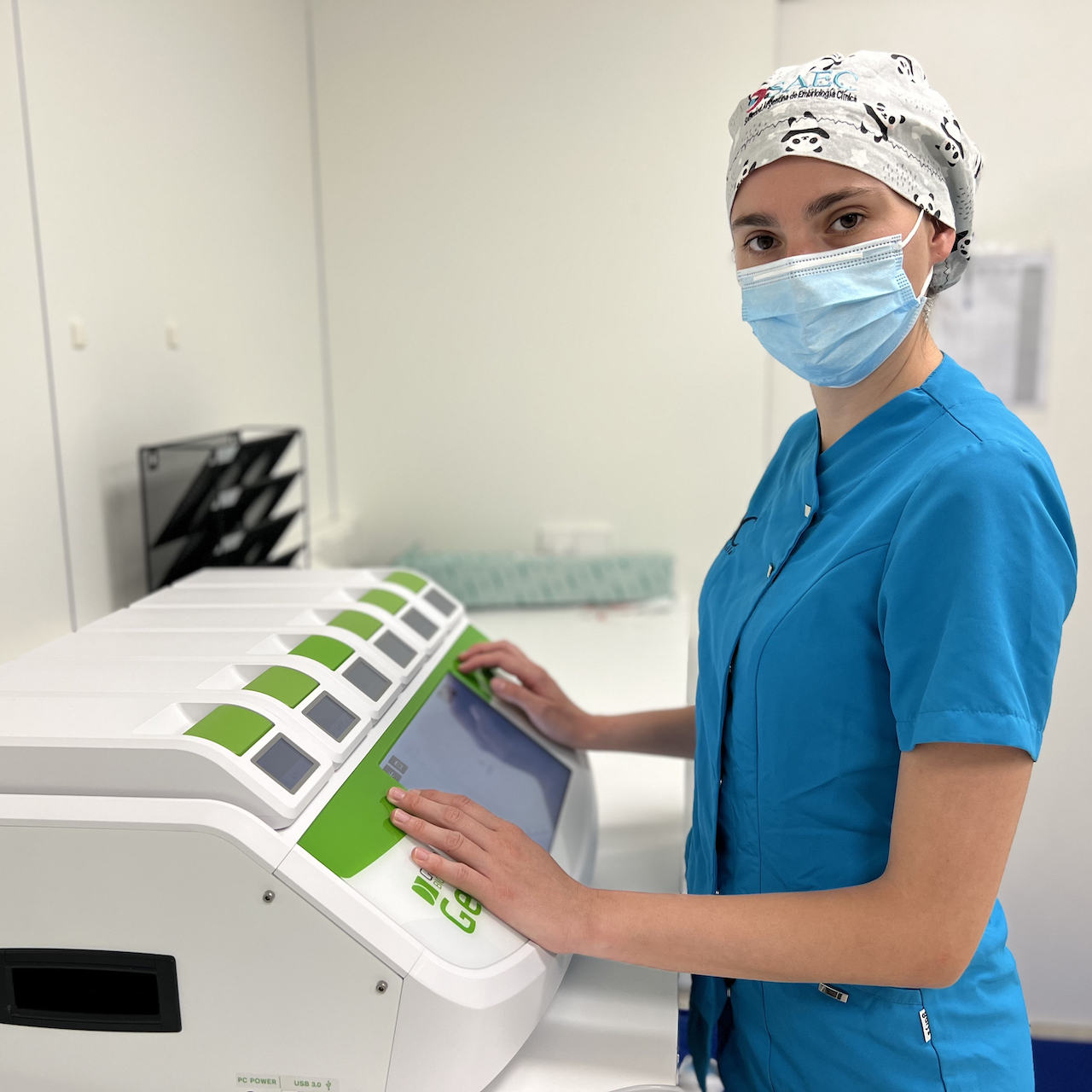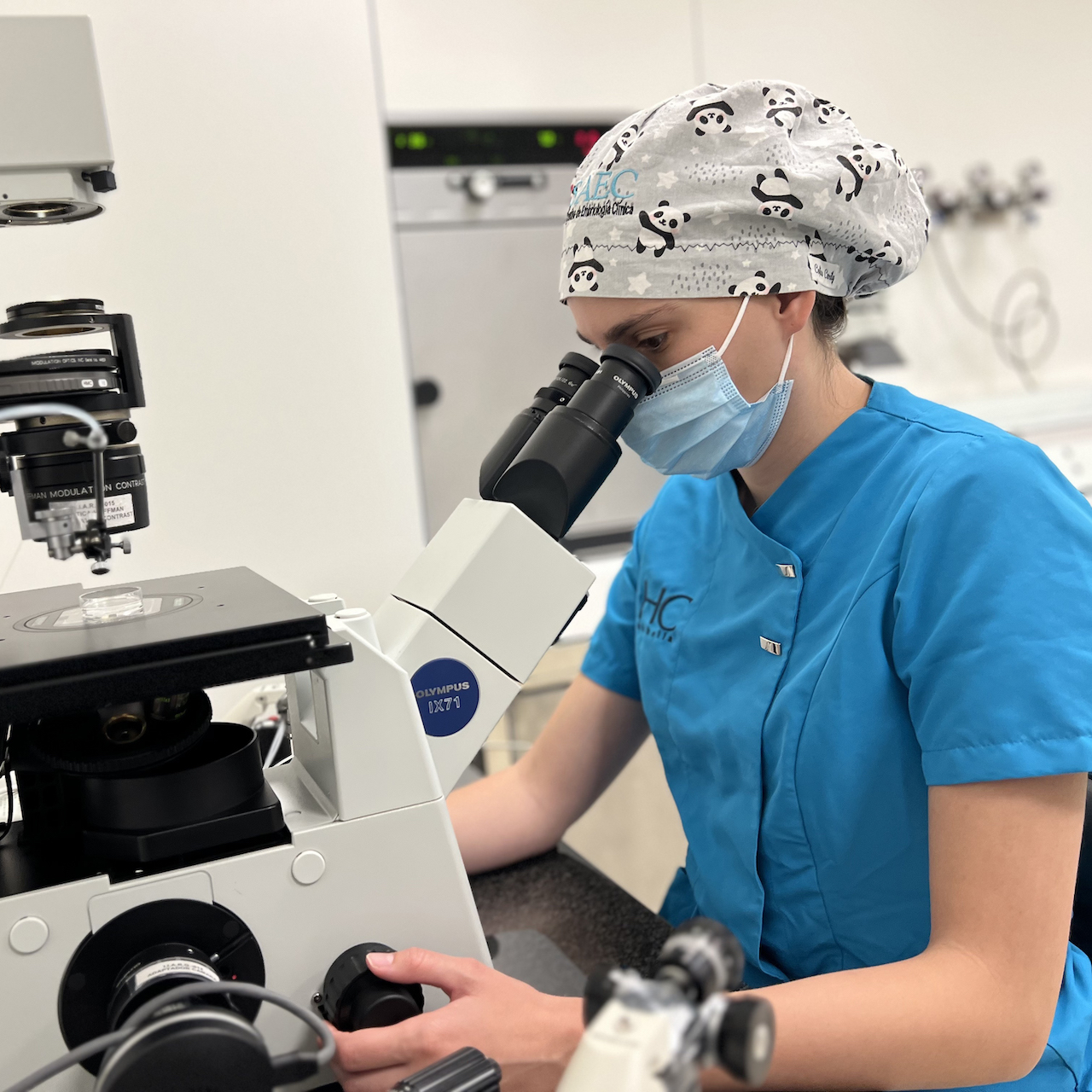27 July, 2023
July 25th, ‘World Embyologist Day’

On July 25th we celebrate the ‘World Embyologist Day’ and HC Marbella would like to congratulate all embryologists for their dedication, effort and work. For being with you, helping you and accompanying you on your way to motherhood and the fulfilment of your dream.

"The embryologist invited me to visit the andrology laboratory and showed me the sperm cells. It was amazing!"
On this special day for us, we asked our embryologist Begoña Sánchez why she decided to dedicate herself to the world of assisted reproduction and this is what she told us:
“The big question when you study biology is… ‘Are you a biologist in a boot or in a gown?’. I chose the gown, but I didn’t really have a clear answer until I reached my final year and started studying Embryology in Vertebrates, when I remembered an anecdote from my childhood”.
“When I was about 6-7 years old, I accompanied my aunt and uncle to a fertility centre for an artificial insemination procedure. That day the embryologist invited me to visit the andrology laboratory and showed me the sperm cells. It was amazing! And it was precisely that memory that finally convinced me to work in this field and help couples like them”.
“Being able to combine your work with the feeling of helping people who are going through this circumstance is the best motivation for our everyday routine. The HC Fertility team and I not only try to give the best of ourselves from a professional point of view, but also to make patients feel supported throughout the whole process”.

Thank you, Begoña, for sharing such a personal, lovely and special testimony, and happy embryologist day to you and to all embryologists!

Back to blog
In other news

17 April, 2024
Pacientes transexuales y la reproducción asistida
At present, in the context of the growing importance of inclusion and diversity, it is crucial to co...
[Continue reading ]21 February, 2025
Preimplantation genetic testing
In the field of assisted reproduction, Preimplantation Genetic Testing (PGT), formerly known as ‘p...
[Continue reading ]


